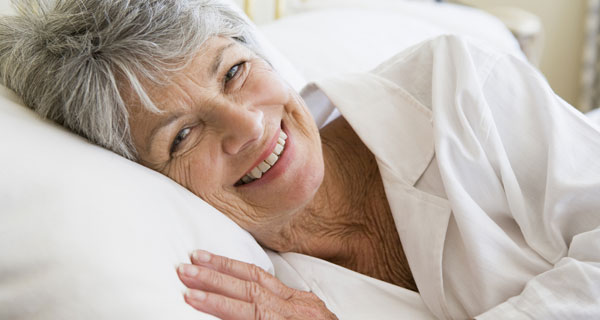Advertisement
Sleep Quality Just May Improve with Age
Sleep quality changes as we age. Studies have shown that as we get older we tend to get sleepy earlier, wake up earlier, and sleep less soundly. But the results of a study reported in the March issue of the journal Sleep suggest that poor sleep quality might not be an inevitable part of aging … Continued

Sleep quality changes as we age. Studies have shown that as we get older we tend to get sleepy earlier, wake up earlier, and sleep less soundly. But the results of a study reported in the March issue of the journal Sleep suggest that poor sleep quality might not be an inevitable part of aging after all.
Sleep is essential for good health, no matter what our age. But especially important for seniors, adequate sleep can improve concentration and memory formation. Sleep also repairs cell damage and re-energizes the immune system.
Surprising finding
A recent survey of more than 150,000 American seniors shows that aging doesn’t appear to contribute to poor sleep quality.
“This flies in the face of popular belief,” said Michael Grandner, PhD, lead author of the study. “These results force us to re-think what we know about sleep in older people — men and women.”
Middle age sleep problems
Researchers found that health problems and depression were associated with poor sleep. More women than men reported that sleep quality declined in middle age, but overall participants reported that sleep quality improved consistently as they got older. People in their 80s registered the fewest complaints.
“Even if sleep among older Americans is actually worse than in younger adults, feelings about it still improve with age,” said Grandner.
Interestingly, the researchers set out to show that sleep problems increase with age, but the results challenged this long-held belief.
Report sleep problems
Researchers urge older people who are not sleeping well to consult their health care practitioner. Regardless of age, we all benefit from a solid 7 to 9 hours of sleep a night. Poor sleep is too important to ignore.
Improve daytime habits
Seniors can do several things during the day to help them get a better night’s sleep.
- Get regular exercise. It boosts endorphin release to improve mood and reduce stress and depression.
- Try to get two hours of sunlight a day. Sunshine regulates melatonin levels and the sleep-wake cycle. Get outside and keep curtains open.
- Be active. Socialize with friends and family, volunteer, join a senior’s group, or take a class.
- Limit your intake of caffeine and alcohol. These stimulants can disrupt your sleep.





